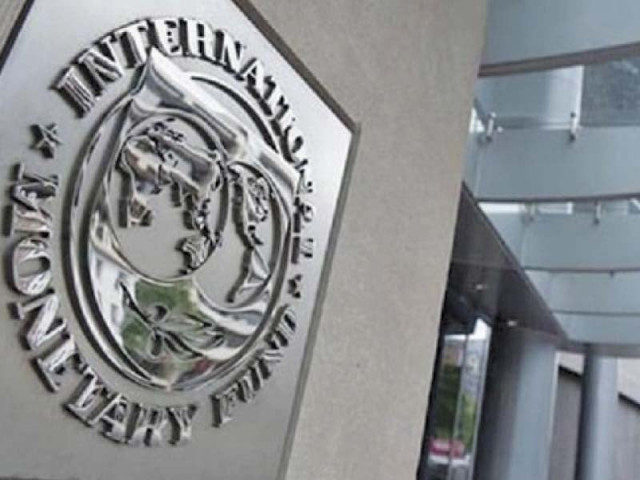The future of IMF and sovereign wealth funds
Geopolitics, Sino-US rivalry mar IMF’s mission as emergency lending arm

The IMF in its latest World Economic Outlook (WEO) report calls the trajectory for 2023 economic recovery as ‘rocky’ – with pronounced global inflation, poor growth and lower investments levels, and an increased risk of flaring up of international financial system.
With global inflation figures expected to peak at 5.1%, Pakistan’s average inflation numbers will be around 27.1% but with a near-zero GDP growth per capita.
However, what the IMF didn’t discuss in its report is that how geopolitics and Sino-US rivalry has marred its mission as an emergency lending arm to support countries in distress.
Despite raising $51 billion since Covid, it has approved a mere 9% of that capital for new lending. Seven countries that defaulted have been waiting for more than a year for a deal.
Countries like Ethiopia had to wait for a couple of years to get a restructuring deal from the IMF while many countries, including Pakistan, who have secured a deal, are still struggling to get the bulk of funds.
The main reason for this is the emergence of sovereign wealth funds in countries and regions with global surplus such as China and the Gulf Cooperation Council (GCC).
Peoples Bank of China (PBOC) and other state-backed banks have become direct competitors of the IMF in global emergency lending as in the past six years Beijing’s emergency loans have exceeded that of IMF’s.
Moreover, when a country who is a beneficiary of Chinese loans approaches the IMF, the IMF takes the application with a pinch of salt as it must ensure fiscal sustainability before borrowing.
The IMF has the mandate to restructure debt on behalf of the Paris Club, but it is not on the same page with Chinese banks. So, if the IMF proceeds with a bailout without a similar debt restructuring assurance from China, the IMF’s dollars will simply flow to PBOC or Exim Bank – something that the IMF’s creditors are wary of.
In fact, statistics show that every penny borrowed from China reduces the odds of a deal with the IMF.
Similarly, thanks to high prices of crude oil, sovereign wealth funds in the Gulf including Saudi Arabia’s Public Investment Fund (PIF) and Abu Dhabi Investment Authority (ADIA) are flushed with cash.
The GCC in the past has allowed countries like Pakistan and Egypt to defer payment for oil purchases but now they want their debtors to bring in economic and fiscal reforms. This is where the IMF comes in as Gulf creditors have made their future commitments conditional with adherence to the IMF programme.
It provides the IMF with a lot of leverage, and we saw in the case of Egypt that IMF’s contribution was a mere 10% of the total bailout package.
Same is the case with Pakistan where the IMF will chip in with a paltry $1.1 billion while China and the GCC are contributing over $6 billion in total.
However, this is not just an equation of geopolitics but more of convenience for the fund as countries like Egypt, Pakistan and Argentina have been on an IMF programme half of the time and have never fulfilled their commitments to reform.
In fact, these three countries account for more than 50% of the fund’s account. It appears that the IMF deliberately wants China to take up the role of emergency lending for the troublesome middle-income countries such as Pakistan and Turkey.
But there is a small catch. Recently, more than 90% of China’s emergency loans were remitted in renminbi – a geo-economic move directly challenging the US dollar. Being world’s biggest exporter of consumer items, it helps to retain demand and keep Chinese factories running amid Sino-US trade wars.
In fact, China is doing what the US did in the last century – using their surplus income for lending heavily to end the dominance of pound sterling and the demand for European products, and then systemising this process using the IMF and the World Bank.
In a nutshell, we see that the landscape of emergency lenders in future will see the IMF on one side of the spectrum financing pro-West and pro-democratic nations while Beijing will be on the other end.
The GCC too will swing a little more towards growing Asian economies, ie, China, India, and Asean where there are prospects to sell more oil.
These geopolitical tensions and resulting fragmentation will result in economic friction, reduced cross-border investments and increased stability risks.
For Pakistan, it is becoming crystal clear that Islamabad will be forced to pick a side and that too soon, unless it goes through extensive structural reforms and builds capital buffers.
The writer is a Cambridge graduate and is working as a strategy consultant
Published in The Express Tribune, May 8th, 2023.
Like Business on Facebook, follow @TribuneBiz on Twitter to stay informed and join in the conversation.



















COMMENTS
Comments are moderated and generally will be posted if they are on-topic and not abusive.
For more information, please see our Comments FAQ